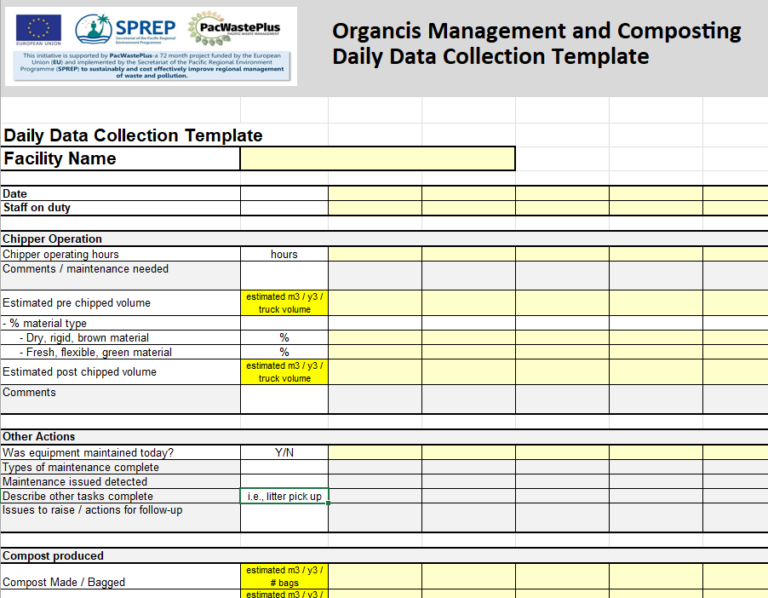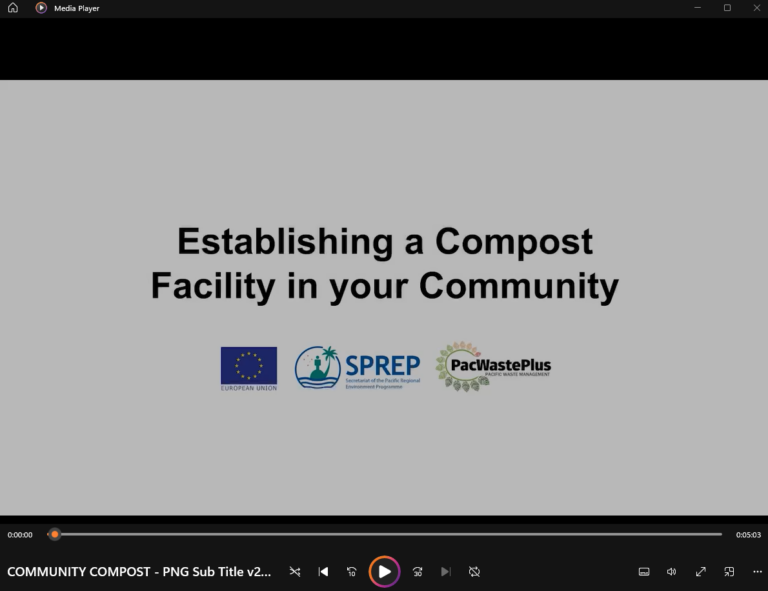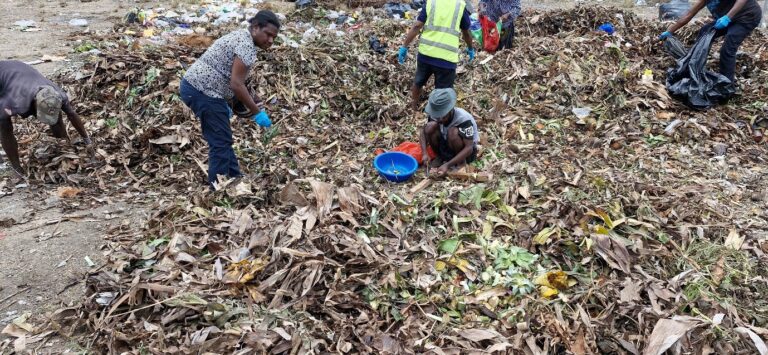Regional Project
Organics
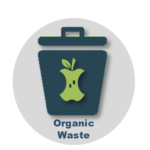
Organics Management
Organics Management
Organic material is biodegradable matter such as kitchen scraps (food); garden cuttings, grass and branches; and paper. Combined data from 13 waste audits in the Pacific found that approximately 40% of waste disposal to our landfills and dumps is organics. When processed correctly (in an “aerobic” or oxygen-filled environment), organic materials can produce valuable nutrient rich products, such as compost, suitable for soil enhancement and food cultivation. However, when intermingled with other waste and disposed in a landfill or dump (an “anaerobic” environment), organic material can release toxic leachate and generate methane gas.
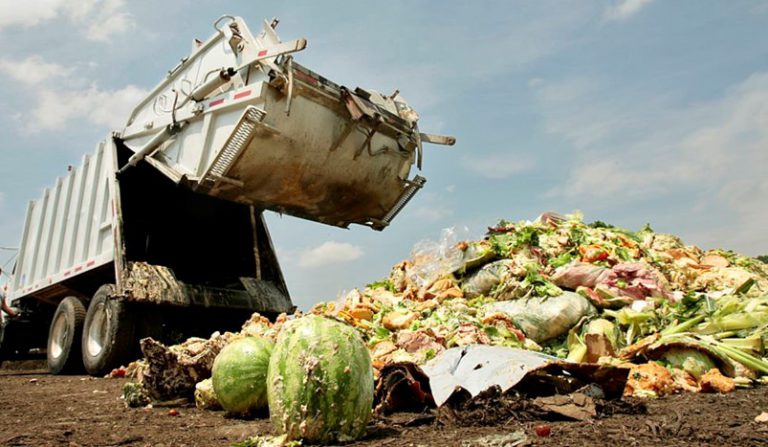
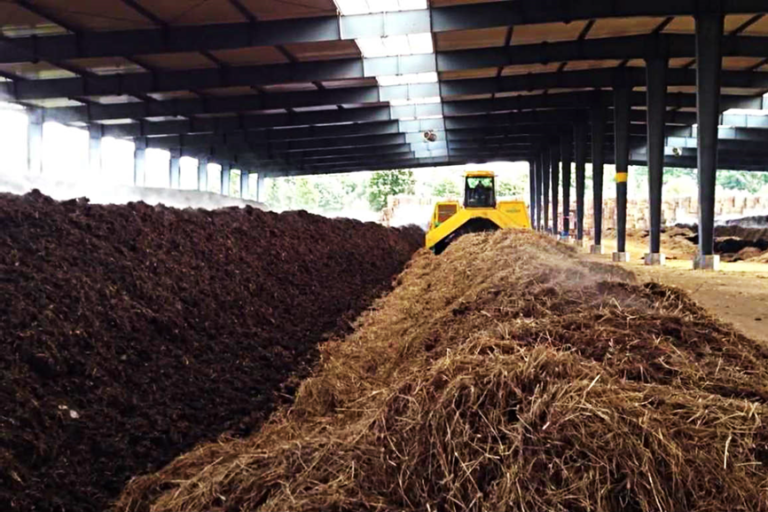
Project Description
The purpose of this regional project is for Pacific stakeholders, now and into the future, to have practical and resources and decision-support needed to design and implement their own effective organics management solutions, appropriate for their own context and communities. Fiji, FSM, RMI, and the Solomon Islands have chosen organics as a priority or secondary priority of their PacWastePlus country project.
What will this project do?
The Organics regional project will review existing Organic facilities from the region, undertake technical research, and adopt findings and resources from Country Projects to develop:
- a “Minimum Standard” technical framework for countries to have as a resource when designing and operating their own organics processing facility
- a “decision guidance resource/tool” – to guide informed decision making around processing system design/technologies, size and equipment requirements, operational processes, etc to suit any context and scale
- on-line training package to guide the application of “decision guidance resource/tool”
- resources to communicate with and empower communities to convert their organic “waste” to a valuable “resource” using appropriate solutions available (i.e., backyard, on-farm, community-level, or national-level organics processing).
Latest news & updates
Browse through all the news & updates related to this project
Project resources
Browse through all the resources published from this project.
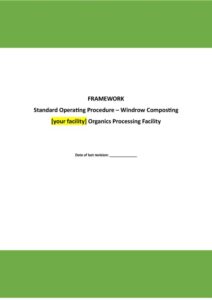
Resource Template
Standard Operating Procedure – Windrow Composting [your facility] Organics Processing Facility
This Framework Standard Operating Procedure (SOP) can be downloaded and customised by operators of medium sized Windrow Compost Facilities, receiving 5-20 tonnes of organic material per week. The SOP can be customised to the local context, and used to guide the effective composting process, providing supervisors and staff the background and guidance on activities to operate and run a Windrow Compost facility safely, effectively, and efficiently. The SOP is split into three sections: • Part 1 – Quick Guide • Part 2 – Stages of Composting • Part 3 – Appendix / Further Reading The SOP is designed to be customised with all areas in yellow designed to prompt an update and tailoring to the local situation.
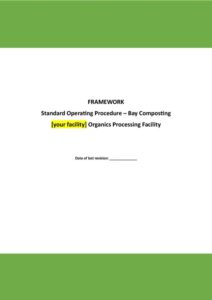
Resource Template
Bay Composting [your facility] Organics Processing Facility: framework standard operating procedure (SOP)
This Framework Standard Operating Procedure (SOP) can be downloaded and customised by operators of medium sized Bay Compost Facilities, receiving 5-20 tonnes of organic material per week. The SOP can be customised to the local context, and used to guide the effective composting process, providing supervisors and staff the background and guidance on activities to operate and run a Bay Compost facility safely, effectively, and efficiently. The SOP is split into three sections: • Part 1 – Quick Guide • Part 2 – Stages of Composting • Part 3 – Appendix / Further Reading The SOP is designed to be customised with all areas in yellow designed to prompt an update and tailoring to the local situation.
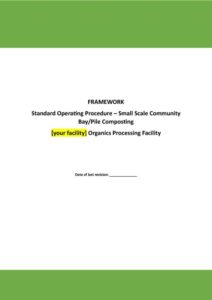
Resource Template
Small Scale Community Bay/Pile Composting [your facility] Organics Processing Facility: framework standard operating procedure (SOP)
This Framework Standard Operating Procedure (SOP) can be downloaded and customised by operators of Small-Scale 3-Bay / Small Pile Composting Facility, receiving less than 100 kg (approximately two wheelbarrows) of organic material per week. The SOP can be customised to the local context, and used to guide the effective operation of a small facility, to ensure the efficient recycling of organic material into compost for soil enrichment. The SOP can be used by households, communities, and small-scale fruit and vegetable growers seeking to establish a compost site, using simple tools and manual labour.
Frequently asked questions
-
- 40% waste disposed to landfill – “anaerobic”
- In-country solutions exist – “aerobic” processing
- Many benefits:
- Saves landfill capacity
- Reduces leachate and methane gas
- Makes a valuable nutrient rich product
- Soil enhancement
- Food cultivation, climate resilience
- Business opportunities
- Project designed to increase knowledge/ expertise to implement organics solutions
-
- Research – social and technical
- Pilot studies
- Resources – package to enable design and implementation of your own organics’ solution:
- How to develop business case
- How to design and construct facility
- How to operate – manual, checklist
- Learnings from case studies


